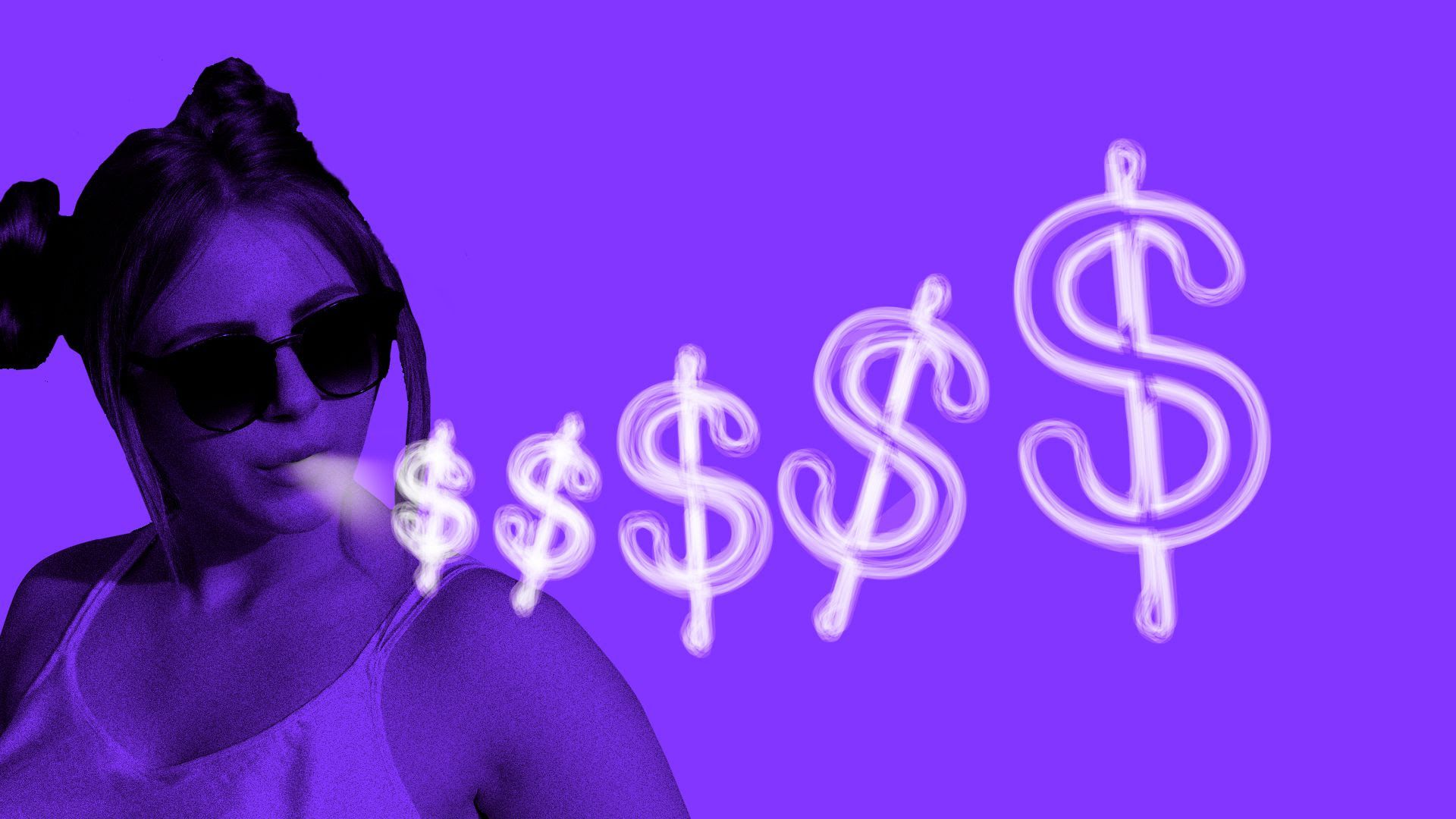Aug 21, 2019 - Health
Juul competitors are on the rise
Add Axios as your preferred source to
see more of our stories on Google.

Illustration: Lazaro Gamio/Axios
Add Axios as your preferred source to
see more of our stories on Google.

Illustration: Lazaro Gamio/Axios